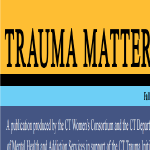 IMRP Heads to Norway for Look Inside Prison System Seeking to ‘Create Good Neighbors’
IMRP Heads to Norway for Look Inside Prison System Seeking to ‘Create Good Neighbors’
A delegation from the University of Connecticut (UConn) visited Norway’s prisons to observe the country’s correctional system, which centers on rehabilitation and creating good neighbors. During the visit, the delegation discovered that the holiday party thrown by Norwegian correctional officers represented a stark difference between Norway and the US. Connecticut does not throw holiday parties for its correctional officers, and the average life expectancy for correctional officers in the US is lower than that of the general population. The delegation’s visit was part of an ongoing effort to learn about and enact changes in Connecticut’s prison system.
 Learning from Norway: Reconstituting hope in our justice system
Learning from Norway: Reconstituting hope in our justice system
A group of stakeholders from the Connecticut justice system visited Norway to explore its correctional service system, which is considered the most humane and effective in the world. During the visit, they learned that Norway’s system is guided by the belief that punishment for a crime is the sentence and loss of freedom and that the goal of the prison system is to create “good neighbors” through rehabilitation. The Norwegian system is based on the “import model,” which is transparent, collaborative, inclusive, and just and engages multiple stakeholders in the rehabilitation process. As a result, Norway’s correctional service produces greater societal safety, safer prisons and communities, and is more cost-effective, leading to greater trust in the system.
 Holiday Party for Kids of Incarcerated Parents Aims to Illuminate Their Bright Futures
Holiday Party for Kids of Incarcerated Parents Aims to Illuminate Their Bright Futures
A holiday party for children of incarcerated parents in Hartford was held by the Children of Color Organization (COCO) to help the children feel loved and supported during the holiday season. The event, which was attended by about 60 kids, included visits from Santa and Mrs. Claus, the opportunity to take home gifts, and the chance to meet local police officers and firefighters. The party was also an opportunity for the children to celebrate Christmas, Kwanzaa, and Hanukkah with other kids who are going through similar experiences. The goal of the event was to provide hope and faith to the children and show them that their futures can be bright.
 Their children need us
Their children need us
Three police officers were shot, with two killed, while responding to a call about a suspected violent crime. The officer who was killed was a father to two young children and a third on the way, while one of the alleged perpetrators was also a father to two young children. The children of the fallen officer will be impacted by the loss of their father, while the children of the alleged perpetrator may face stigma, shame, and shared blame from others, as well as bullying and harassment. It is important for the community to support all child victims of crime, including those connected to the alleged perpetrator, with love, compassion, and gentleness, and for schools to provide support and compassion to affected children and report any negative behavior towards them.
 CT prison aims to maintain bonds with incarcerated mothers and their children
CT prison aims to maintain bonds with incarcerated mothers and their children
York Correctional Institution in Niantic, Connecticut, has opened a new playground to support incarcerated mothers in maintaining bonds with their children. The playground, funded with $50,000 obtained from the General Assembly by the Connecticut Children with Incarcerated Parents Initiative at UConn, features swings, slides, and a jungle gym. It will be available during visitations and for special programs, benefiting about 400 mothers at the institution and countless incarcerated moms and their children in the years to come. The initiative recognizes the importance of family connections for incarcerated parents and their children’s well-being.
 Playground at York Correctional Will be Newest Tool to Connect Incarcerated Moms With Their Kids
Playground at York Correctional Will be Newest Tool to Connect Incarcerated Moms With Their Kids
Nearly more than half of the women at York Correctional Institution in Niantic are moms. It’s why the prison is now taking a new step to help incarcerated parents maintain a bond with their kids by installing a new playground at the facility later this month. “We’ve learned that maintaining the relationship during separation is crucial for children’s wellbeing and health,” UConn’s CT Children with Incarcerated Parents Initiative Manager Aileen Keays said. “We also think for the public as it also demonstrates to reduce recidivism if you can maintain family connections during the separation.”
 Connecticut Becomes First State to Provide Free Calls from Prison
Connecticut Becomes First State to Provide Free Calls from Prison
Connecticut Gov. Ned Lamont signed a bill on Wednesday that makes phone calls from prisons free for incarcerated people and their loved ones. Connecticut is the first state to do so. Senate Bill 972 makes all communication in state prisons and youth detention facilities free, prohibits the state from collecting revenue from communication services, and ensures that in-person visits will not be replaced with video calls.
 More Family Visits Sought for Halfway House Parolees
More Family Visits Sought for Halfway House Parolees
The state Department of Correction, halfway houses across the state and a criminal justice nonprofit are looking at how to have better family reunification for people staying at halfway houses in Connecticut. Tyran Sampson looked forward to seeing his children more when he got out of prison, but at a halfway house after his release he found even fewer opportunities to be with his family.He could have his family visit only once a week — on Sundays — while staying at a halfway house in Hartford last year. While he was in prison, he said, his family could visit three times a week.
 Families Want Connecticut to Stop Profiting From Prison Phone Calls
Families Want Connecticut to Stop Profiting From Prison Phone Calls
After bringing attention last year to high phone costs for families calling their loved ones in state prisons, state Rep. Josh Elliott is again leading the charge to pass legislation to end the practice of allowing the state to profit from the calls. Currently, the state collects a 68% commission on all calls family members make to inmates.
 Gov. Newsom Signs SB 394, creating a diversion court for parents
Gov. Newsom Signs SB 394, creating a diversion court for parents
SB 394 will create a new collaborative court system in California dedicated to serving parents and primary caregivers at risk of incarceration – a group that requires special consideration because when a parent is incarcerated, their children suffer traumatic and life-long consequences. Thanks to SB 394, eligible parents and caregivers will have the opportunity to access the support and treatment they need, without being separated from the kids who depend on them. In this new primary caregiver pretrial diversion court, judges will have the option to send people to rehabilitative programs, counseling, financial literacy courses, and other life altering services as an alternative to incarceration.
 Dancing, playing replaces partitioned prison visits for kids
Dancing, playing replaces partitioned prison visits for kids
The family dance at the Willard-Cybulski Correctional Institution is part of a prison pilot program from the National Institute of Corrections called Family Connections, which is being tried out at Cybulski and at prisons or jails in New York, Wisconsin, Texas and Oregon. The idea is to make it easier for parents inside to connect with their children and to resume the role of mother or father once they are released.
 Dancing, playing replaces partitioned prison visits for kids
Dancing, playing replaces partitioned prison visits for kids
There was glass between them. They had to use a phone to talk. It was kind of scary. He didn’t always want to go. On Monday night 11-year-old Myles was again inside a prison visiting 25-year-old Christopher Brown, who is serving a 3-year sentence on firearms charges. But this time he and his sister, 7-year-old Chloe, got to dance with their dad, play games, eat pizza and laugh. Dad also got to hold his 10-month-old daughter, Ameila.
 Inmates and their children gather at first family dance in new program at Willard-Cybulski Correctional Institution
Inmates and their children gather at first family dance in new program at Willard-Cybulski Correctional Institution
The center is one of five pilot sites in the nation selected by the National Institute of Corrections to run programs that will build connections between children and their parents in prison. The reintegration center, part of the Willard-Cybulski Correctional Institution in Enfield, helps to prepare inmates for return to the community and their families.
 First ‘Family Dance’ event held at CT Department of Correction
First ‘Family Dance’ event held at CT Department of Correction
The Connecticut Department of Correction is one of only five sites in the country that was selected for the Family Connections Pilot Program, focused on incarcerated parents and their children. The Family Dance was set to allow fathers preparing for release, to bond with their children while behind bars.
 Activists Fight for Children on the Path to Criminal Justice Reform
Activists Fight for Children on the Path to Criminal Justice Reform
Estimates vary but the number of U.S. children today who have experienced parental incarceration at least once in their childhood is roughly 2.2 million, according to a government approximation. The Connecticut Children with Incarcerated Parents (CTCIP) Initiative said in a statement to Cheddar, that supporting the maintenance of a positive and stable relationship allows the child to experience less trauma and stress while the parent is in prison, resulting in better mental health and behavioral outcomes.
 Winners and losers: The 2019 legislative session
Winners and losers: The 2019 legislative session
Our telecoms bill, which would have made prison phone calls free for inmates’ family members, cleared two key committees and almost made it to final vote in the House. We received lot of support from the community and though the bill didn’t go through this year, we will continue to fight and be ready for next year.
 Prison inmates shouldn’t have to pay for phone calls
Prison inmates shouldn’t have to pay for phone calls
Families of prisoners pay far too much for phone calls. My family spent approximately $9,000 during the six-plus years I spent at York Correctional Institution just to talk to me, to plan what needed to be done for upcoming court appearances, to allow me to wish my father well as he headed into open heart surgery. To reduce this burden on Connecticut residents, Representative Josh Elliot introduced HB 6714 — An Act Concerning the Cost of Telecommunications Services in Correctional Facilities — which passed out of the Joint Committee on the Judiciary last month and might pass before the close of this legislative session. It would make Connecticut the first state to provide free phone calls to prisoners — if it has Gov. Ned Lamont’s support.
 Inmate Phone Call Bill Advances
Inmate Phone Call Bill Advances
Diane Lewis has spent about $250 a month in phone calls for more than a decade to stay in contact with her 33-year-old incarcerated son. Although her son will be released soon, she said she was speaking for the thousands of mothers behind her when she stood in support of HB 6714 which would make phone calls from state prisons free during a press conference Tuesday. “There are mothers who haven’t talked to their sons in years” because of the cost of the calls, Lewis said. “I always pay the phone bill first, even if it means paying the cable bill late.”
 Elizabeth Warren weighs in on Connecticut prison-call debate
Elizabeth Warren weighs in on Connecticut prison-call debate
Sen. Elizabeth Warren, D-Mass., a presidential candidate, weighed in on the debate among lawmakers in Hartford on whether to make phone calls free for inmates in state prisons.
A bill to make calls free is pending in committee in the state legislature, and Warren gave her endorsement of the proposal on Twitter. Warren Tweeted Saturday: “Incarcerated Americans shouldn’t have to pay to talk to the people they love. I stand with the activists in Connecticut who are working to make prison calls free.”
 Advocates rally for passage of a bill that would make prison phone calls free
Advocates rally for passage of a bill that would make prison phone calls free
Advocates for a proposal that would allow inmates to make free telephone calls were heartened when the bill was endorsed Tuesday by the legislature’s Appropriation Committee and forwarded to the House of Representatives. James Jeter, who was in prison for 19 years and is now a Trinity College student, called the vote “a Herculean lift that no one thought would happen, except those pushing it. I just hope it doesn’t get stalled,” Jeter said. “It deserves a vote.”
 Bill that would make prison phone calls free sent to the House
Bill that would make prison phone calls free sent to the House
Advocates for a proposal that would allow inmates to make free telephone calls were heartened when the bill was endorsed Tuesday by the legislature’s Appropriation Committee and forwarded to the House of Representatives. James Jeter, who was in prison for 19 years and is now a Trinity College student, called the vote “a Herculean lift that no one thought would happen, except those pushing it. I just hope it doesn’t get stalled,” Jeter said. “It deserves a vote.”
 While Prisoners Struggle to Afford Calls to Their Families, States Are Making a Profit. This Must Stop Now
While Prisoners Struggle to Afford Calls to Their Families, States Are Making a Profit. This Must Stop Now
Connecticut, with the exception of Arkansas, charges more for a phone call in prison than any state in the country. Connecticut charges $4.87 for a 15-minute collect call, which is 32 times more than the state with the lowest phone rate, Illinois, which charges 14 cents for 15 minutes. The Connecticut bill, as it is currently written, would also ensure that if the state were to implement video conferencing, which a growing number of states have begun to do, that such communication would remain free as well—an important provision, given the rising cost of video-conferencing in other states.
 Connecticut Governor Is Stonewalling Free Prison Calls Bill
Connecticut Governor Is Stonewalling Free Prison Calls Bill
Connecticut Gov. Ned Lamont, a Democrat who grew his personal fortune through the telecommunications industry, is stonewalling a bill that would establish Connecticut as the first state in the nation to make phone calls from prison free for incarcerated people and their families. Securus Technologies, the national prison telecommunications corporation that Connecticut has contracted with since 2012, has been quietly lobbying against the legislation for weeks, though it reversed course on Wednesday.
 Connecticut considers making phone calls free for prisoners
Connecticut considers making phone calls free for prisoners
Marlene Torres sometimes must choose between paying a bill or paying for phone calls that allow her 12-year-old foster son to talk to his father in prison. “The child has some behavior (issues) at school because his dad is in there,” said Torres, 27, of Hartford. “He needs to talk to him, because he does much better when he talks to him.” Torres is among those pushing Connecticut lawmakers to pass legislation that would make the state the first to provide free calls from prisoners. Currently, inmates or their families pay $4.87 for phone calls of up to 15 minutes, the second-highest rate in the nation.
 Connecticut Legislators Push For Free Prison Phone Calls
Connecticut Legislators Push For Free Prison Phone Calls
Connecticut legislators are hoping to pass a bill that would make phone calls from prisons in the state free. Currently the high cost of communication between prisoners and their families has negative consequences. Brittany Kane, program coordinator for the CIP said the fees can be devastating for low-income families trying to maintain relationships with loved ones who are incarcerated.
 Legislators consider making prison phone calls free Judicial Branch says measure would cost it $5.5 million in lost revenue
Legislators consider making prison phone calls free Judicial Branch says measure would cost it $5.5 million in lost revenue
At a hearing before the Judiciary Committee, Torres spoke in favor of a bill that would allow inmates to make or receive phone calls for free, telling lawmakers she grew up “stressed out” and “very depressed” because she missed her brother, who was a father figure to her. Brittany Kane, program coordinator for the CIP, also spoke in favor of the bill, telling lawmakers that a 15-minute call within the state’s prisons costs about $4.
 The difference a visit can make, the effect of parental incarceration on children
The difference a visit can make, the effect of parental incarceration on children
When Suzi Jensen went to see her mom in prison at the age of 12 she was only allowed to hug her twice, once at the beginning of the visit and once at the end. “They just had tables and you had to sit across the table from her,” said Jensen, now in her 30s. “At that age, being a 12-year-old girl, there were a lot of things happening, big changes and not being able to sit and cry and talk to her was terrible.”
 A hard look at what prison means for the kids left behind
A hard look at what prison means for the kids left behind
One in every 14 children in the U.S. has had a parent in prison. For poor families, it’s one in eight. They are the collateral damage of a mass incarceration movement that has made the U.S. the nation with the most prisoners in the world. For the past nine years, it’s been the job of Aileen Keays Yeager to figure out what that means for children in Connecticut.
 Listen to the recent interview with the CIP Initiative’s Program Manager, Aileen Keays Yeager on WTIC’s At Home in Connecticut
Listen to the recent interview with the CIP Initiative’s Program Manager, Aileen Keays Yeager on WTIC’s At Home in Connecticut
Aileen Keays Yeager discusses the newly interactive website designed for children and families experiencing the incarceration of a loved one. The CIP initiative also released a study that dispel the common myths and investigates issues surrounding parental incarceration that are frequently not considered.
 New Connecticut Report Focuses on Children of Incarcerated Parents
New Connecticut Report Focuses on Children of Incarcerated Parents
Interview by WNPR, a new report commissioned by two Connecticut organizations looks at the challenges children face when their parents are in prison. One of those groups — the Connecticut Association for Human Services — to see what they found and how they plan on using the results to guide future policy conversations. Also hear from a college student whose father spent nearly a decade behind bars.
 CCSU initiative helps kids with parents behind bars
CCSU initiative helps kids with parents behind bars
Children of parents who are incarcerated face challenges that other kids can’t even imagine. There can be a loss of income, a loss of the person who loved and cared for them, a loss of dignity and a quiet shame that is often hidden from classmates, teachers and friends, said Aileen Keays, a research specialist with Central Connecticut State University’s Institute for Municipal & Regional Policy.
 How Incarceration Effects the Children Left Behind and What You Can Do To Support Them
How Incarceration Effects the Children Left Behind and What You Can Do To Support Them
What is the value of a child’s bond with a caregiver? Over time our society has gained awareness and compassion – and has put systems in place – for children separated from one or more parents. It is widely understood, in a general sense, that a child separated from their parent or primary caregiver will struggle. Yet this awareness does not translate when incarceration is the cause of that separation.
 Connecticut official wants prison nursery for new moms
Connecticut official wants prison nursery for new moms
Under Connecticut’s current policy, the mothers are allowed to stay with their newborns only while in the hospital. After that, and usually within 48 hours of giving birth, the parent returns to prison, and the child is placed with a relative or in foster care.
 Camp Helps Prisoners’ Kids Cope
Camp Helps Prisoners’ Kids Cope
The camp is headquartered at Dixwell and Argyle at the Believe in Me Corporation (BIMEC) social services agency. Aileen Keays said that for kids of incarcerated parents, “One of the biggest issues is stigma and isolation of talking about it, which can be very harmful. By meeting other kids with similar life challenges, it helps them better deal with the challenges.”